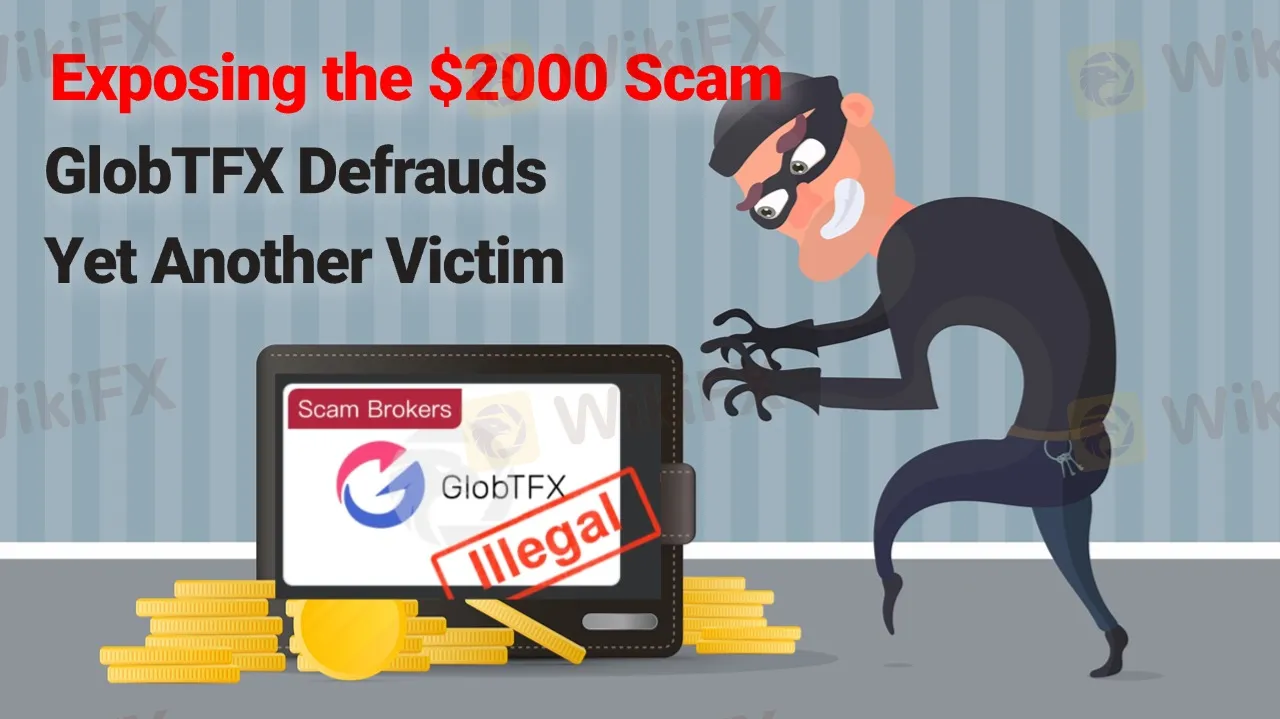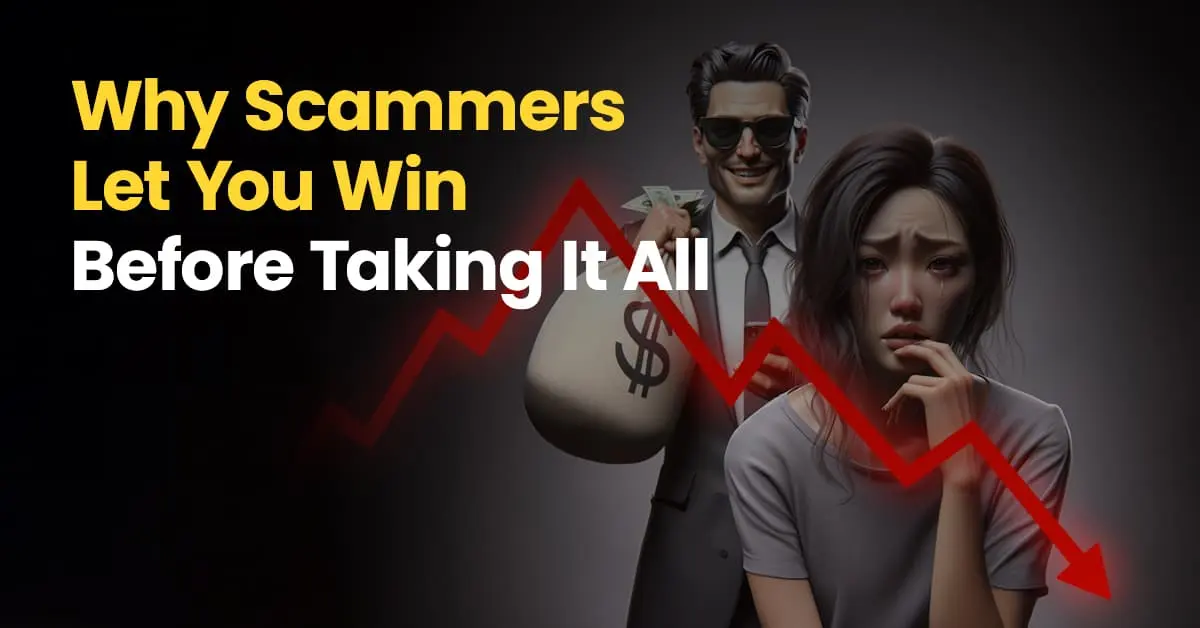简体中文
繁體中文
English
Pусский
日本語
ภาษาไทย
Tiếng Việt
Bahasa Indonesia
Español
हिन्दी
Filippiiniläinen
Français
Deutsch
Português
Türkçe
한국어
العربية
Exposing the $2000 Scam: GlobTFX Defrauds Yet Another Victim
Abstract:One victim, lured by GlobTFX’s false promises of investment returns, invested $2000 only to face total loss of funds. The platform shirked its responsibility, an appalling act. This article will reveal how the platform uses fraudulent tactics to deceive investors, in hopes of preventing further victims from falling into the trap.

Recently, GlobTFX, under the guise of offering high returns, attracted many investors to deposit funds and trade. However, as with all lies, the truth eventually comes out, and the scam was bound to be exposed. More and more investors began to encounter issues when attempting to withdraw funds, and some even found their accounts “disconnected,” making it impossible to recover their money. Many victims reported that the platforms operations were far more devious and malicious than they initially imagined.
One such victim, shocked by his experience, chose to expose it to WikiFX and revealed how GlobTFX hid its fraudulent behavior behind technical issues and false advertising. This investor shared that at first, the platform seemed to operate normally, and the promised returns were paid on time.

However, on February 2, 2025, a critical moment occurred: the system crashed. The platform suddenly became unresponsive, causing the loss of a valuable trading opportunity, and the funds were completely wiped out. The platform displayed “System Maintenance,” and withdrawals were disabled, leaving the victim completely helpless.

What was even more frustrating was the constant vague responses from customer support, and at times, there was no reply at all. The platform repeatedly blamed “technical issues” and “hacker attacks” to avoid taking responsibility, refusing to address the problem. In the end, the victim lost the entire $2000, and the platform offered no compensation.


Fraudulent Tactics Employed by the Platform GlobTFX handles investor complaints by employing two main tactics of evasion. First, the platform frequently claims “technical failures,” preventing users from logging into their accounts or making withdrawals. Second, the platform uses “hacker attacks” as an excuse to explain the collapse of the trading system. These tactics leave investors unable to withdraw funds and without effective support or compensation, deepening their suffering.
Rights Protection Actions and Follow-up
In response to this series of fraudulent actions, WikiFX intervened promptly and began tracking the case, helping victims collect evidence and exposing the platforms illegal activities.

GlobTFXs rating on WikiFX is extremely low, indicating potential trading risks. WikiFX advises all investors not to trust promises of high returns, especially from financial platforms that lack proper regulation and approval.
For those who have already fallen victim, WikiFX will continue to follow up on the case, assisting them in taking legal action to recover their losses.
We encourage all victims to join the fight for justice by submitting information through WikiFXs Rights Protection Center, helping prevent other investors from falling prey to similar scams. WikiFX will continue to monitor the situation of such platforms and provide support to investors, ensuring every victim can reclaim their rightful funds.
Disclaimer:
The views in this article only represent the author's personal views, and do not constitute investment advice on this platform. This platform does not guarantee the accuracy, completeness and timeliness of the information in the article, and will not be liable for any loss caused by the use of or reliance on the information in the article.
Read more

Why Scammers Let You Win Before Taking It All
One of the most cunning tactics fraudsters employ is allowing victims to win at first. But why do scammers take this approach, and how does it work?

How to Avoid Risks from Scam Brokers in Forex Investment
In recent years, the forex market has become a popular choice for global investors due to its high liquidity and 24-hour trading advantages. However, according to the recently concluded WikiFX "3·15 Forex Rights Protection Day " event, we received over 6,000 pieces of evidence exposing rights violations within a short period. This reflects that, although the forex industry is becoming more regulated, fraudulent platforms continue to emerge, causing significant suffering for many victims.

California Cracks Down on Crypto Scams: 42 Websites Shut Down in $6.5M Bust
California Attorney General Rob Bonta announced earlier this week that the state had taken decisive action against fraudulent cryptocurrency operations. Authorities successfully shut down 42 scam websites responsible for deceiving investors out of at least $6.5 million.

FINRA Panel Orders Stifel to Pay $132.5M for Misleading Investors
FINRA arbitration panel rules Stifel must pay $132.5M for misrepresenting risks of structured notes, highlighting investor protection.
WikiFX Broker
Latest News
FINRA Panel Orders Stifel to Pay $132.5M for Misleading Investors
The Future of Trading is Here: How AI is Reshaping the Market Landscape
Nigeria’s Oil and Gas Sector Gains Momentum
How to Avoid Risks from Scam Brokers in Forex Investment
Gold Price Hits Record High Amid Economic Uncertainty and Policy Shifts
Could DeepSeek Be Linked to a $390 Million Fraudulent U.S. Server Deal?
Ripple Secures Dubai License: First Blockchain Payments Provider in DIFC
BSP Restricting Offshore Forex Trades to Control Peso Volatility
Retiree Loses RM2.33 Million in Investment Scam – Could You Be Next?
Will Trump's Trade Policies Fuel Inflation? BlackRock Warns of Economic Risks
Currency Calculator






